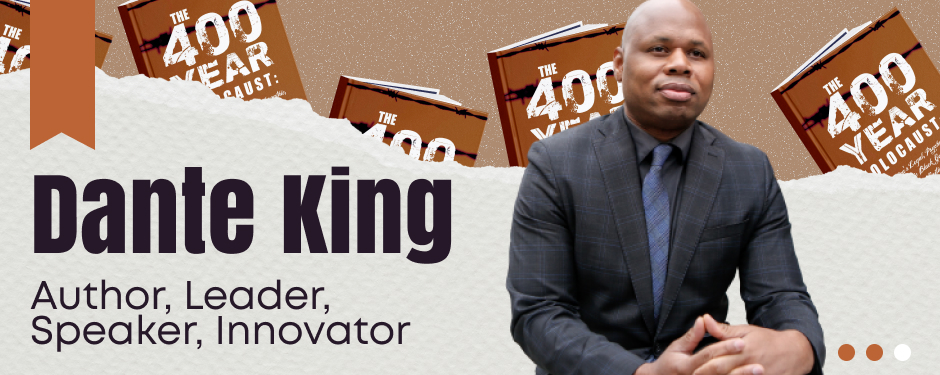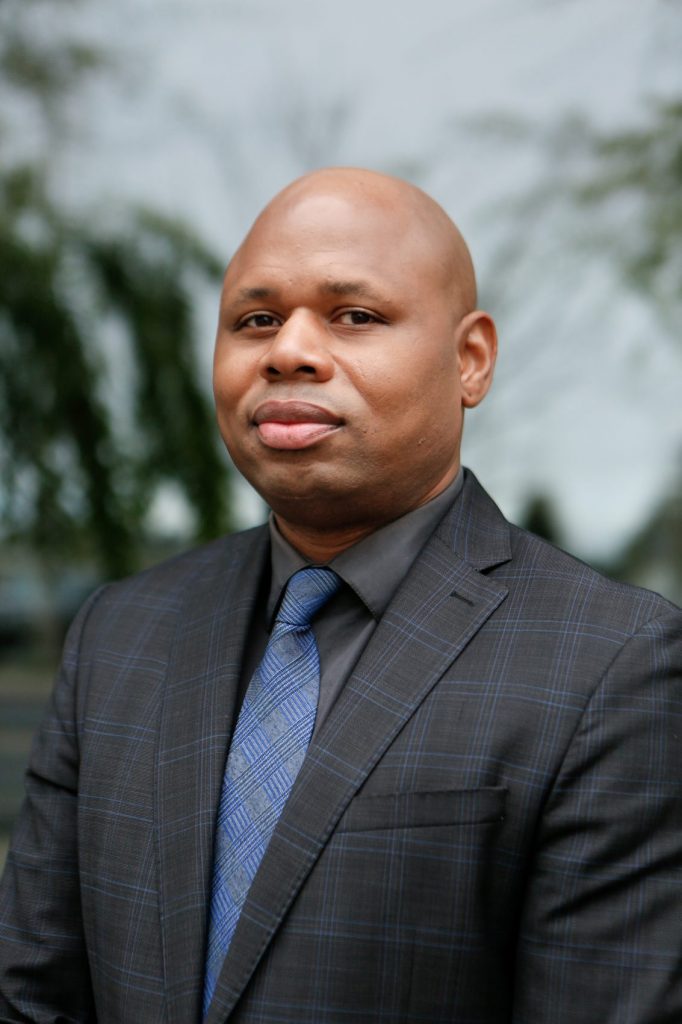Bio:
Dante King is a native of San Francisco, California. He is an author of the new book The 400-Year Holocaust: White America’s Legal, Psychopathic, and Sociopathic Black Genocide and the Revolt Against Critical Race Theory. Dante is also a historian, scholar, thought-leader, facilitator, and coach. Dante has worked and consulted for more than 15-years as a human resource management professional specializing in the implementation of anti-racist practice, and organizational development and change.
Dante partnered with the San Francisco Board of Supervisors to develop and enact the City and County of San Francisco’s Racial Equity Ordinance, which led to the first-ever citywide Office of Racial Equity. Dante was previously the Deputy Director for the Department of Public Health Office of Health Equity, in San Francisco, one of the largest public health organizations in the country with more than 8,000 employees. He led and directed the development and implementation of the department’s Racial Equity Action Plan, which focused on improving both workforce and health equity outcomes. Prior to assuming this role, Dante was the Director of Race, Equity, and Inclusion at the San Francisco Municipal Transportation Agency (SFMTA), one of the largest municipal transportation agencies in the country, with more than 6,000 employees. He led and directed the design, development, and implementation of the agency’s first-ever Racial Equity Action Plan, focused on improving workforce outcomes.
Dante King has advocated for and represented Black employees across the City and County of San Francisco, as the leader of the Black Employees Alliance (B.E.A). The B.E.A consistently partnered with San Francisco Leadership (Mayor London N. Breed, S.F. Board of Supervisor President Shamann Walton, Hillary Ronen, Matt Haney, and Sandra Fewer), to highlight and address racial inequities and disparities across all departments in the areas of recruitment and hiring, pay and promotions, recognition, and discipline and terminations. The B.E.A was instrumental in compelling and influencing the hiring of Dr. William Gould IV, whose firm investigated the city’s employment practices, issuing a comprehensive summary of findings and recommendations.
In addition to Dante’s Human Resources Management background, and work as a public servant, he has consulted and led antiracism courses for Stanford Medical School, Johns Hopkins, UCSF, and the Mayo Clinic. He currently serves as guest faculty at the Mayo Clinic, and the University of California San Francisco (UCSF), where he teaches a course called Understanding the Roots of Racism and Bias: Antiblackness and Its Links to Whiteness, White Racism, Privilege, and Power. Dante has consulted and partnered with organizations in the areas of human resource management antiracism policy and program development and implementation. Some of the organizations Dante has worked with include Wikimedia Foundation, The Athletic, Oakland Unified School District, UCSF California Preterm Birth Initiative, UCSF Alliance Health Project, and BATS Improv, to name a few.
Dante has presented at annual conferences, such as the National Education Association’s Annual Conference on Race and Social Justice, and American Public Health Association. He has also been featured on Legal Lens with Angela Reddock-Wright (KBLA 1580), The Sisaundra Show, KPFA, and a host of other outlets.



